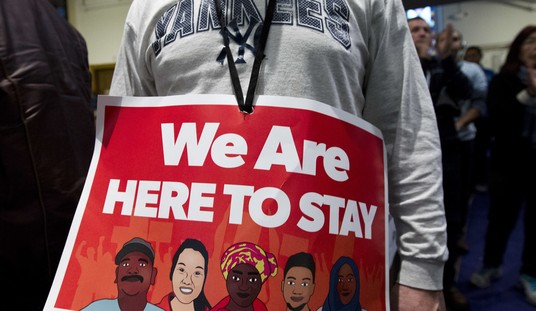In December 2020, I documented the trademark lawsuit of the singer Anita White, who has performed under the name Lady A for over 25 years, until the group formerly known as Lady Antebellum, in an episode of born-again Woke, decided they would use that for their new, less racist, name.
Racism is, as racism does.
Rolling Stone Magazine reports that a year later, Lady A the singer still has not gotten justice or the right to fully brand the moniker she has performed under for almost 30 years.
Anita “Lady A” White was worried she was going to be erased. Now she worries it’s already happened.
One year ago, the black Seattle blues singer had to enter an unexpected battle over her own name when the country trio formerly known as Lady Antebellum announced they’d change their name to Lady A to distance themselves from the former name over its reference to the pre-Civil War, slavery ridden American South, unintentionally co-opting the name from her.
While the band and White had amicable conversations in the days following Rolling Stone breaking the news, the two parties couldn’t reach an agreement on the name’s use. The band had previously registered a trademark to the name, while White’s claiming common law ownership given her use of the name for nearly 30 years. The band would file a lawsuit against White in Tennessee asking for legal documentation verifying their rights to the name alongside White, who herself feels she shouldn’t have to share the name that was already hers. White later filed a countersuit of her own in Washington. The court denied White’s request to dismiss the band’s suit, and proceedings will begin in Tennessee if the two parties cannot settle by next year.
“They get to make their music, tour as ‘Lady A’ and get to continue to use that name without any regard to hurting my brand,” she says. “I said it was going to happen and now I feel myself getting erased.”
Rolling Stone did an extensive interview with White, memorializing the one-year marker when talks between White and the band broke down. Lady A the band filed a lawsuit in Tennessee, and Lady A the singer filed a subsequent lawsuit in Washington, which is where she resides. White also filed a motion to dismiss the band’s suit, or to have the suits incorporated and heard only in Washington.
A judge has recently denied that request.
While trademark infringement is a complicated process, how cases are handled by competing courts is not. As explained in Digital Music News:
In explaining the decision, Judge Ricardo S. Martinez noted that “when two actions that sufficiently overlap are filed in different federal district courts, one for infringement and the other for declaratory relief, courts apply the ‘first-to-file’ rule.”
Furthermore, the judge specified that there is “substantial overlap between both matters such that litigation of both matters would likely undermine judicial efficiency and risk conflicting decisions.”
Expanding upon the point, he also indicated that the Tennessee court’s determining that it “lacks personal jurisdiction” over White may cause the case’s transfer under the first-to-file rule to be considered “inappropriate” – or, alternatively, a transfer or dismissal may prove appropriate here if the judge in the initial suit allows the case to proceed.
Now, as mentioned, Judge William L. Campbell Jr. has denied the original Lady A’s request to dismiss the Tennessee suit or transfer it to Washington.
In his 20-page-long ruling, the judge relayed on the specific-jurisdiction front that “the forum state has an interest in resolution of this dispute, and Plaintiffs have an interest in obtaining relief.”
Moreover, Judge Campbell wrote that White and her counsel hadn’t provided “sufficient evidence” that the potential “financial burden” associated with litigating in Tennessee “outweighs all others in rendering the exercise of jurisdiction unreasonable.”
White had nothing good to say about the all-white artists formerly known as Lady Antebellum and their actions:
The folks who made the statement that black lives mattered to them and the reasoning behind changing their name, I don’t want anybody to ever forget that. That is another reason for me to stay in my position and stand up for myself. It’s an insult to me as a musician and as a black woman that you would say that black lives matter and that you’d change your name but you didn’t really, and after a year we’re still in the same position.
White has refused to settle, and is insistent on her day in court, not only for justice to be fully served, but to bring greater awareness to the legacy of Black performers who have had their work co-opted by white power brokers, and that future generations of musicians will gain hope and strength from their struggle and hers.
And I think of all the musicians and singers that came before me, who played the chitlin’ circuit and who couldn’t go into hotels, couldn’t play in places. My mom, my grandmother and my great-grandmother who all sang, I owe them something, I owe them that respect because they instilled strength and encouragement and inspired me. Those women in my life and singers who came before me, Denise LaSalle, who was one of my idols in blues, Ella Fitzgerald, Rosetta Tharpe, Big Mama Thornton, they had it rough but still made it. They made it doing what they loved despite the odds. I want young people to know that I can be like them and they can be like them. I don’t need a million fans. I need the people who really love what I do. That’s all I really need.
While Lady A the band has all the money and a well-funded public-relations machine on their side, Lady A the singer could well win in the court of public opinion. Lady A the band may get to maintain the trademark and the brand, but their reputation, not to mention their “Woke” creds, will be trashed by this.
The aftermath of all this supposed “racial awareness” from corporations, the sports industry, and the music industry is, as the Texans say, “All hat, no cattle,” and ultimately has not gone well.
We see this with Coca-Cola, Major League Baseball, and as always, with the dim-bulb, luminaries of the Hollywood Left.














Join the conversation as a VIP Member